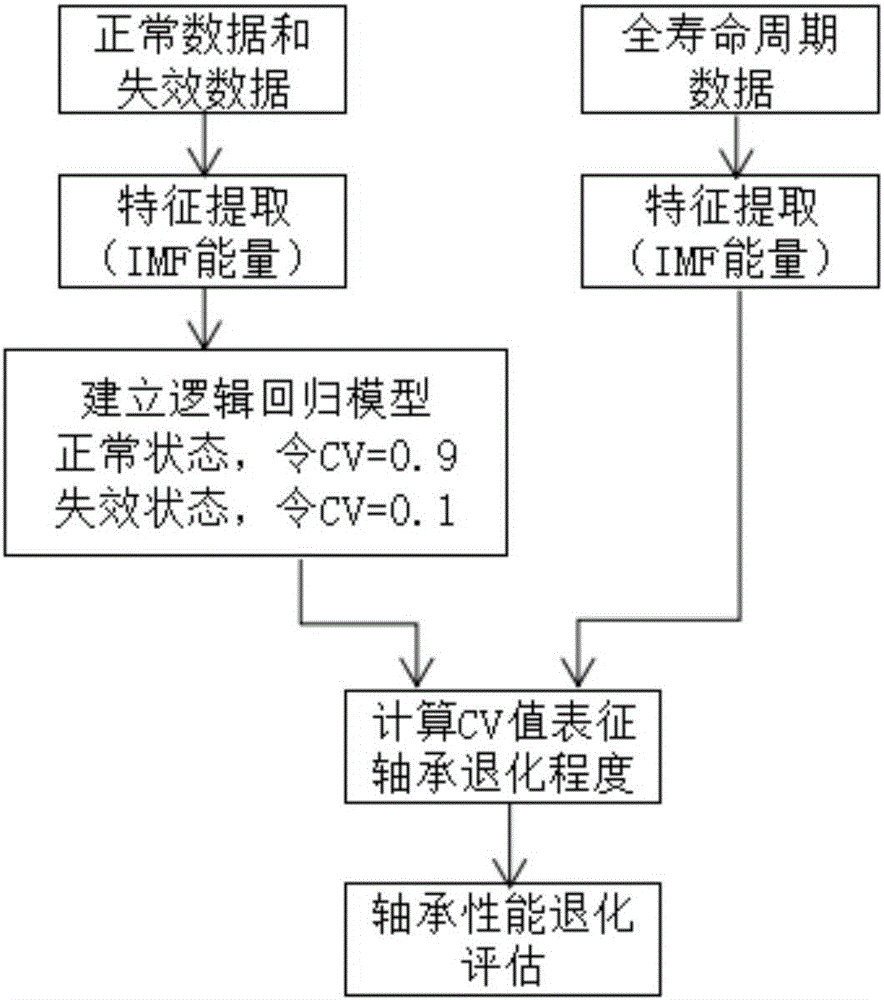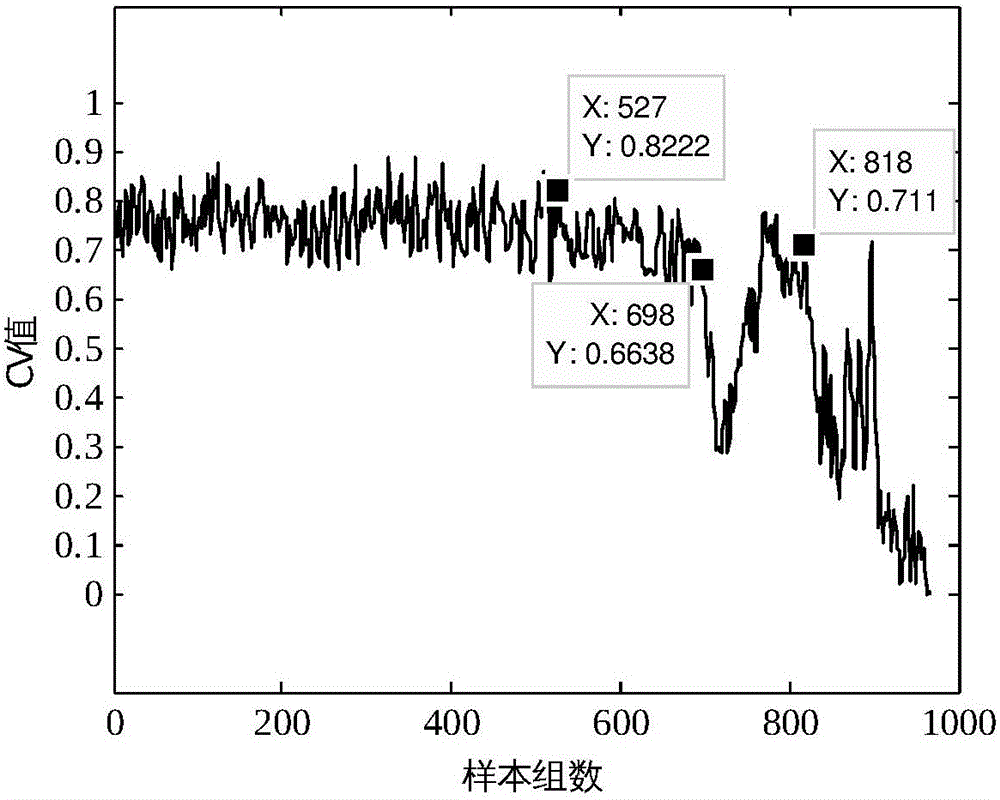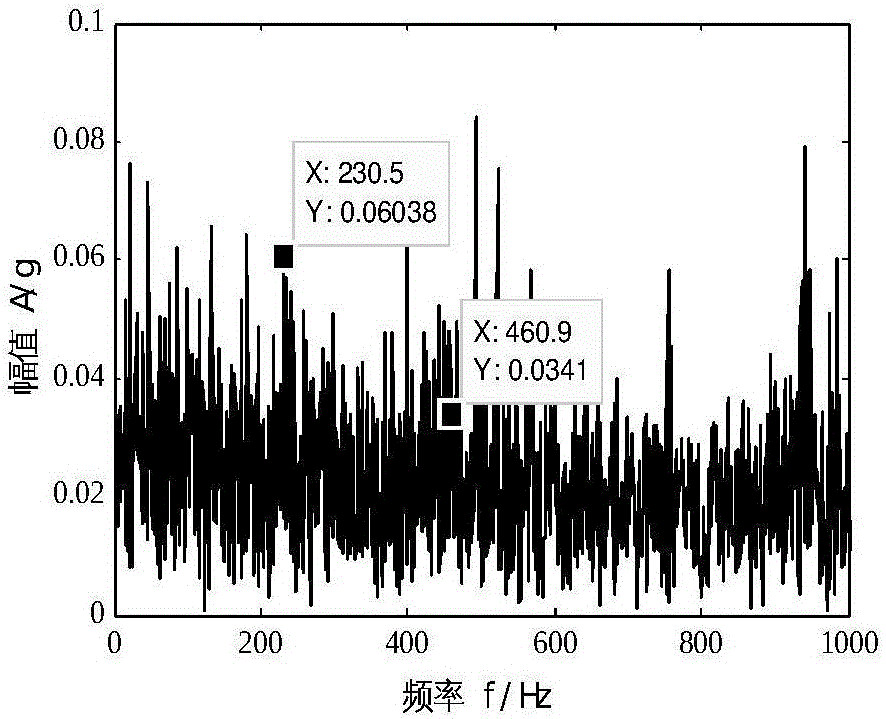Antifriction bearing performance degradation assessment method based on empirical mode decomposition and logistic regression
A technology of empirical mode decomposition and logistic regression, applied in the direction of mechanical bearing testing, etc., can solve the problems of non-stationarity, energy leakage, non-adaptiveness, etc., and achieve the effect of quantitative performance indicators and simple calculation
- Summary
- Abstract
- Description
- Claims
- Application Information
AI Technical Summary
Problems solved by technology
Method used
Image
Examples
Embodiment 1
[0053] The evaluation method of rolling bearing performance degradation based on empirical mode decomposition and logistic regression, the specific steps are as follows:
[0054] (1) Extract features. Use the empirical mode decomposition method to extract the eigenmode function characteristic components of the original signal, and calculate the energy of each eigenmode function component, h 1 ,h 2 ,...,h n Contains different frequency components from high to low respectively.
[0055] It is known from the calculation that the first seven eigenmode function energies contain more fault information, and the remaining eigenmode function energies have little influence on the total energy, so only the first 7 eigenmode function energies and the rest are taken as The 8th eigenmode function energy obtains an 8-dimensional eigenvector (that is, E=(E 1 ,E 2 ,...,E 8 ).
[0056] (2) Build a model. Randomly select 50 sets of data in the normal state of the bearing and 50 sets of...
PUM
 Login to View More
Login to View More Abstract
Description
Claims
Application Information
 Login to View More
Login to View More - R&D
- Intellectual Property
- Life Sciences
- Materials
- Tech Scout
- Unparalleled Data Quality
- Higher Quality Content
- 60% Fewer Hallucinations
Browse by: Latest US Patents, China's latest patents, Technical Efficacy Thesaurus, Application Domain, Technology Topic, Popular Technical Reports.
© 2025 PatSnap. All rights reserved.Legal|Privacy policy|Modern Slavery Act Transparency Statement|Sitemap|About US| Contact US: help@patsnap.com



